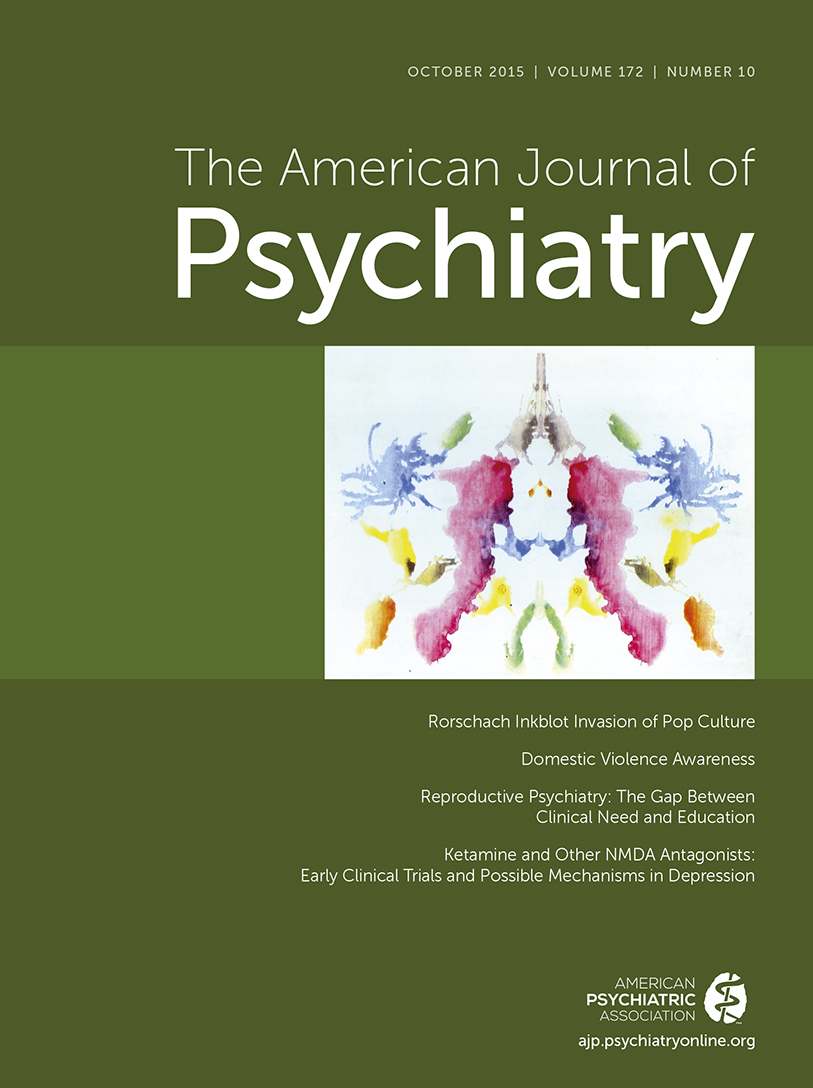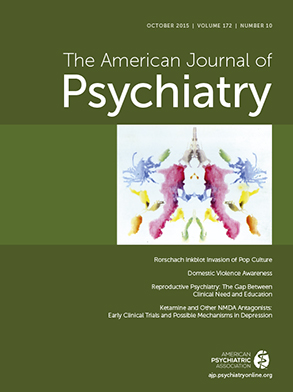In 2001, Constance Holden wrote an article for
Science discussing the concept of behavioral addictions (
1), and the topic has been of interest to researchers and clinicians since that time. In fact, there is now an entire international journal dedicated to the topic of behavioral addictions (
http://akkrt.hu/74/journals/products/psychology/journal_of_behavioral_addictions_en). To further address this thirst for information regarding these behaviors, Drs. Ascher and Levounis have edited a new text,
The Behavioral Addictions. Unlike previous books on the subject, this new volume implicitly argues for an expanded understanding of behavioral addictions by offering, in addition to the expected accounts of gambling and Internet gaming, chapters on problematic exercise, texting/e-mailing, tanning, and even work addiction. In addition, the text offers detailed cases representative of each behavior, clinical questions for inexperienced clinicians to broach the various topics with patients, and perhaps most uniquely, links to videos showing expert interviews with typical patients. Using detailed cases as well as videos, this text provides a unique presentation of an understudied area of mental health. As such, for the student of mental health or the inexperienced clinician, this volume offers an engaging introduction to an important area of human behavior.
Perhaps unintentionally, the text also raises important issues within the field of mental health. Although the concept of behavioral addictions is heuristically appealing on many levels, it has not yet been shown clinically, neurobiologically, developmentally, or genetically to be a unified category of behaviors (
2). In the case of the most studied putative “behavioral addiction” (i.e., gambling), we have some evidence to support a link with substance addiction, but even in the case of gambling, categorizing it as a behavioral addiction may be premature and may ignore its complexity. For example, a recent study has found that gambling in fact may share quite a bit genetically with obsessive-compulsive disorder (
3). Thus, although recognition of problematic behaviors is important, one should exercise caution before creating premature and perhaps unnecessary groupings. In the case of other behaviors presented in this volume, such as exercise, tanning, and work, the link to traditional substance addictions is even weaker. So does simply calling something an addiction make it so? This book would have the reader believe that these behaviors are, in fact, addictions. Perhaps they are, but simply listing them as such may be putting the cart before the horse, and may be (mis)directing treatment down a path without substantial evidence to support the approach. For example, would characterizing excessive exercise as a body image concern, or compulsive sexual behavior as a problem of intimacy, rather than as an addiction be more appropriate and potentially more useful for patients? We simply do not know at this time, and yet the text often seems unwilling to engage this complexity (except in the chapter on kleptomania, which is particularly good).
Who is the audience for this text? Each chapter adroitly presents the clinical presentation of typical patients with each behavior and as such is informative to students or inexperienced clinicians. The treatment sections, however, fail to highlight how little controlled research has been performed and instead often talk of treatment evidence as definitive even when based on single case reports or uncontrolled studies. This is not the fault of the authors but reflective of the lack of treatment evidence for many of these behaviors. Suggesting that treatment for these behaviors should follow an addiction model, however, seems less compelling without strong science to support it.
In sum, the book is a noble effort at focusing attention on often undiagnosed serious problems. The videos and the detailed cases are delightful. The volume, however, seems best targeted to students of mental health because experienced clinicians may find the treatment sections of limited use.

